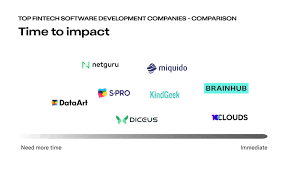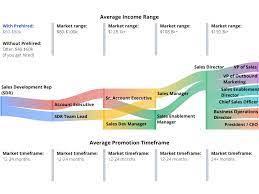Fintech Software Development: Revolutionizing the Financial Industry
In recent years, the financial industry has undergone a significant transformation with the rise of fintech software development. Fintech, short for financial technology, refers to the innovative use of technology to deliver financial services in a more efficient and user-friendly manner. From mobile banking apps to online payment platforms, fintech has revolutionized how we manage our finances.
Fintech software development plays a crucial role in this revolution by creating cutting-edge solutions that address the evolving needs of both businesses and consumers. These solutions encompass a wide range of areas within the financial sector, including banking, investment management, insurance, lending, and more.
One of the key advantages of fintech software development is its ability to enhance accessibility and convenience. Traditional financial services often required physical visits to banks or lengthy paperwork processes. However, with fintech solutions, customers can now access their accounts and perform transactions anytime and anywhere through user-friendly mobile applications or web interfaces. This level of convenience has not only improved customer satisfaction but also increased financial inclusion by providing services to previously underserved populations.
Moreover, fintech software development has significantly improved efficiency in various financial processes. Automation and artificial intelligence algorithms have streamlined tasks such as risk assessment, fraud detection, and customer support. By reducing manual intervention and human error, these technologies have enhanced accuracy while saving time and costs for both businesses and consumers.
Security is another critical aspect that fintech software development addresses. With increasing concerns about data breaches and identity thefts, robust security measures are paramount in the financial industry. Fintech solutions employ advanced encryption techniques, multi-factor authentication systems, and biometric identification methods to safeguard sensitive information. These measures provide users with peace of mind when conducting transactions online.
Furthermore, fintech software development has opened up new avenues for innovation in areas such as peer-to-peer lending platforms, robo-advisors for investment management, blockchain-based cryptocurrencies, and digital wallets. These technologies have disrupted traditional financial models by offering alternative ways to access capital, invest, and transfer funds securely.
The continuous evolution of fintech software development is driven by collaboration between financial institutions, technology companies, and startups. This collaboration fosters an environment of innovation and encourages the adoption of emerging technologies within the financial industry. As a result, we can expect further advancements in areas like artificial intelligence, machine learning, big data analytics, and blockchain integration.
In conclusion, fintech software development has revolutionized the financial industry by providing innovative solutions that enhance accessibility, convenience, efficiency, and security. The ongoing advancements in this field continue to reshape how we manage our finances and interact with financial services. As technology continues to evolve, the potential for fintech software development to transform the financial landscape remains vast.
6 Frequently Asked Questions About Fintech Software Development: Challenges, Security, Technologies, Regulations, Skills, and Trends
- What challenges come with fintech software development?
- How can I ensure my fintech software is secure?
- What technologies are used in fintech software development?
- How does the regulatory landscape affect fintech software development?
- What skills are needed to develop successful fintech applications?
- What trends should I be aware of when developing a new fintech application?
What challenges come with fintech software development?
While fintech software development offers numerous benefits and opportunities, it also comes with its fair share of challenges. Here are some of the key challenges that developers and organizations may face in this field:
- Regulatory Compliance: The financial industry is heavily regulated to ensure consumer protection, prevent fraud, and maintain stability. Fintech software developers must navigate complex regulatory frameworks and ensure that their solutions comply with applicable laws and regulations. Staying up-to-date with changing regulations can be challenging, especially when operating in multiple jurisdictions.
- Security Risks: Fintech deals with sensitive financial data, making security a top priority. Developers need to implement robust security measures to protect against cyber threats, data breaches, and unauthorized access. Staying ahead of evolving security risks requires continuous monitoring, regular updates, and adherence to best practices.
- Data Privacy: Collecting, storing, and processing user data is a common practice in fintech software development. However, ensuring data privacy is crucial to gain trust from customers. Developers must comply with privacy regulations (e.g., GDPR) and implement strong data protection measures to safeguard personal information.
- Scalability: Fintech solutions often experience rapid growth in user base and transaction volume. Ensuring that the software can handle increasing demands without performance degradation or system failures is essential. Scalability challenges may arise when integrating with legacy systems or expanding services across different platforms.
- Integration Complexity: Fintech software often needs to integrate with various external systems such as banking APIs, payment gateways, or third-party services for enhanced functionality. Ensuring smooth integration while maintaining data integrity can be complex due to differences in protocols, standards, or compatibility issues.
- User Experience: In an increasingly competitive market, providing an exceptional user experience is crucial for fintech success. Designing intuitive interfaces that cater to users’ needs while maintaining compliance requirements can be a challenge for developers.
- Talent Acquisition: Fintech software development requires a diverse skill set, including financial domain knowledge, programming expertise, and understanding of security and compliance. Finding and retaining skilled professionals with these capabilities can be challenging due to high demand and competition.
- Funding and Investment: Developing fintech solutions often requires significant investment in research, development, infrastructure, and marketing. Attracting funding or securing investment can be a challenge for startups or smaller organizations without an established track record.
Despite these challenges, fintech software development continues to thrive as technology advances and the demand for innovative financial services grows. Overcoming these obstacles requires a combination of technical expertise, industry knowledge, adaptability, and collaboration with stakeholders to ensure the successful development and deployment of fintech solutions.
How can I ensure my fintech software is secure?
Ensuring the security of your fintech software is crucial to protect sensitive financial data and maintain the trust of your users. Here are some key steps you can take to enhance the security of your fintech software:
- Implement robust authentication: Use strong authentication mechanisms such as multi-factor authentication (MFA) to verify user identities. MFA combines multiple factors like passwords, biometrics, or one-time verification codes to add an extra layer of security.
- Encrypt sensitive data: Encrypting sensitive data both in transit and at rest is essential. Utilize industry-standard encryption algorithms to protect user information from unauthorized access. This includes encryption for databases, storage systems, communication channels, and any other data transmission.
- Regularly update software: Stay up-to-date with the latest security patches and updates for your software components, frameworks, libraries, and operating systems. Regularly applying these updates helps address known vulnerabilities and strengthens the overall security posture.
- Conduct thorough testing: Perform comprehensive security testing throughout the development lifecycle of your fintech software. This includes vulnerability assessments, penetration testing, code reviews, and security audits to identify and address any potential weaknesses or vulnerabilities.
- Implement secure coding practices: Follow secure coding practices to minimize common vulnerabilities such as injection attacks, cross-site scripting (XSS), or insecure direct object references (IDOR). Train developers on secure coding techniques and conduct regular code reviews to ensure adherence to best practices.
- Employ strong access controls: Implement role-based access controls (RBAC) that grant appropriate privileges based on user roles and responsibilities. Restrict access to sensitive functionalities or data based on the principle of least privilege (PoLP) to minimize potential risks.
- Monitor for suspicious activities: Implement robust logging mechanisms that capture relevant events within your fintech software application. Monitor logs regularly for any suspicious activities or anomalies that may indicate a security breach or unauthorized access attempts.
- Educate users on security best practices: Provide clear guidelines and educate your users on security best practices, such as creating strong passwords, avoiding phishing attempts, and being cautious with sharing personal information. Regularly communicate security tips and updates to keep your users informed.
- Establish incident response plans: Develop a comprehensive incident response plan that outlines steps to be taken in the event of a security incident or breach. This includes procedures for detection, containment, investigation, communication, and recovery.
- Stay updated on industry standards and regulations: Keep abreast of evolving security standards and regulatory requirements specific to the fintech industry. Compliance with regulations such as PCI-DSS (Payment Card Industry Data Security Standard) or GDPR (General Data Protection Regulation) is essential to ensure data protection and privacy.
Remember that ensuring the security of your fintech software is an ongoing process. It requires continuous monitoring, adaptation to emerging threats, regular updates, and proactive measures to stay ahead of potential vulnerabilities. By prioritizing security from the early stages of development and implementing best practices throughout the software lifecycle, you can significantly enhance the overall security of your fintech software.
What technologies are used in fintech software development?
Cloud Computing: Cloud computing is a core technology used to develop fintech software. It provides the infrastructure and platform for developers to build secure, reliable, and scalable applications.
Big Data: Big data technologies such as Hadoop and Apache Spark are used to collect, store, and analyze large amounts of financial data. This helps fintech companies gain insights into customer behavior and make informed decisions about their products and services.
Artificial Intelligence (AI): AI is used to automate complex tasks such as fraud detection, risk management, customer segmentation, and portfolio optimization. AI-powered algorithms can also be used to recommend the best financial products for customers based on their needs and preferences.
4. Blockchain: Blockchain technology is a distributed ledger that provides secure transactions between two parties without the need for a third-party intermediary such as a bank or credit card company. It is being used in areas such as payments processing, asset trading, identity verification, loan origination, and more.
How does the regulatory landscape affect fintech software development?
The regulatory landscape plays a significant role in shaping the development and operation of fintech software. As the fintech industry continues to grow, governments and regulatory bodies around the world have recognized the need to establish frameworks to ensure consumer protection, financial stability, and fair competition. Here are some ways in which the regulatory landscape affects fintech software development:
- Compliance Requirements: Fintech companies must adhere to various regulations depending on the jurisdictions they operate in. These regulations may include anti-money laundering (AML) and know your customer (KYC) requirements, data protection laws, consumer protection regulations, and cybersecurity standards. Fintech software developers need to design their solutions with these compliance requirements in mind, ensuring that their platforms are built to meet these regulatory obligations.
- Licensing and Registration: In many countries, fintech companies are required to obtain specific licenses or registrations to operate legally. These licenses may vary depending on the type of financial services provided, such as payments processing or lending activities. Fintech software developers need to be aware of these licensing requirements and ensure that their solutions comply with the necessary regulations.
- Data Privacy and Security: With the increasing amount of sensitive financial data being processed by fintech applications, data privacy and security have become critical concerns for regulators. Fintech software developers must implement robust security measures to protect customer information from unauthorized access or breaches. Compliance with data protection laws such as the General Data Protection Regulation (GDPR) in Europe is essential for fintech companies operating globally.
- Risk Management: Regulators often require fintech companies to have adequate risk management frameworks in place to identify, assess, and mitigate risks associated with their operations. Fintech software developers should consider incorporating risk management features into their applications, such as fraud detection algorithms or anti-money laundering systems.
- Regulatory Sandboxes: Some jurisdictions have introduced regulatory sandboxes that allow fintech companies to test their innovative products or services in a controlled environment. These sandboxes provide a space for fintech software developers to collaborate with regulators, understand regulatory requirements, and ensure compliance while fostering innovation.
- Cross-Border Regulations: Fintech companies that operate across multiple jurisdictions face the challenge of navigating different regulatory frameworks. They must understand and comply with regulations in each jurisdiction they serve. Fintech software developers need to design their solutions with flexibility in mind to accommodate varying regulatory requirements.
Overall, the regulatory landscape significantly impacts fintech software development by shaping compliance requirements, licensing procedures, data privacy and security standards, risk management practices, and cross-border operations. Collaboration between regulators and fintech innovators is crucial to strike a balance between fostering innovation and ensuring consumer protection within the evolving fintech ecosystem.
What skills are needed to develop successful fintech applications?
Developing successful fintech applications requires a combination of technical skills, industry knowledge, and an understanding of user needs. Here are some key skills that are essential for fintech software developers:
- Programming Languages: Proficiency in programming languages such as Python, Java, C++, or JavaScript is crucial for building fintech applications. These languages are commonly used for backend development, data processing, and creating robust APIs.
- Web Development: Strong web development skills are essential for creating user-friendly interfaces and seamless online experiences. Knowledge of HTML, CSS, and JavaScript frameworks like React or Angular can help in building responsive and intuitive front-end interfaces.
- Mobile Development: With the increasing use of mobile devices for financial transactions, expertise in mobile app development is highly valuable. Familiarity with iOS (Swift) or Android (Java/Kotlin) development frameworks can enable the creation of secure and efficient fintech mobile applications.
- Data Management: Fintech applications deal with vast amounts of sensitive financial data. Understanding database management systems like SQL or NoSQL is crucial to ensure efficient data storage, retrieval, and security.
- Security Measures: Fintech developers must have a strong grasp of cybersecurity principles and best practices to protect user data from unauthorized access or breaches. Knowledge of encryption techniques, secure communication protocols (e.g., HTTPS), and authentication methods is vital.
- API Integration: Many fintech applications rely on integrating with third-party services such as payment gateways or banking APIs. Proficiency in working with APIs and implementing secure data exchange between systems is essential for seamless integration.
- Financial Domain Knowledge: Understanding financial concepts like banking operations, investment management, risk assessment, compliance regulations (e.g., KYC/AML), and payment processing is crucial when developing fintech applications. This knowledge helps ensure that the application meets industry standards and user expectations.
- Problem-Solving Skills: Fintech developers need strong problem-solving skills to tackle complex challenges, such as optimizing transaction speed, enhancing security measures, or improving user experience. The ability to analyze requirements and find innovative solutions is key to building successful fintech applications.
- Collaboration and Communication: Fintech development often involves working in multidisciplinary teams comprising designers, product managers, and business analysts. Effective communication and collaboration skills are essential for understanding project requirements, coordinating efforts, and delivering high-quality solutions.
- Continuous Learning: The fintech industry is dynamic and constantly evolving. Developers need to stay updated with the latest trends, technologies, and regulatory changes in the financial sector. A commitment to continuous learning and adaptability is crucial for long-term success in fintech software development.
By combining these technical skills with a deep understanding of the financial industry’s needs and user expectations, developers can create successful fintech applications that meet the demands of modern financial services.
What trends should I be aware of when developing a new fintech application?
Open Banking: Open banking is becoming increasingly popular as a way for customers to access their financial data and make payments securely. As such, it is important to ensure that your fintech application is compliant with the open banking regulations in your jurisdiction.
Automation: Automation is becoming a key trend in fintech applications, as it can help reduce costs and increase efficiency. Consider integrating automation into your application to streamline processes and improve customer experience.
Artificial Intelligence (AI): AI is being used more and more in fintech applications to automate processes, detect fraud, and provide personalized customer experiences. As such, it’s important to consider how AI can be used within your application to enhance the user experience.
4. Security: Security is paramount when it comes to developing a fintech application, as customers will need to trust that their data and money are safe from malicious actors. Ensure that your application is secure by implementing best practices such as encryption, two-factor authentication, and regular security audits.




